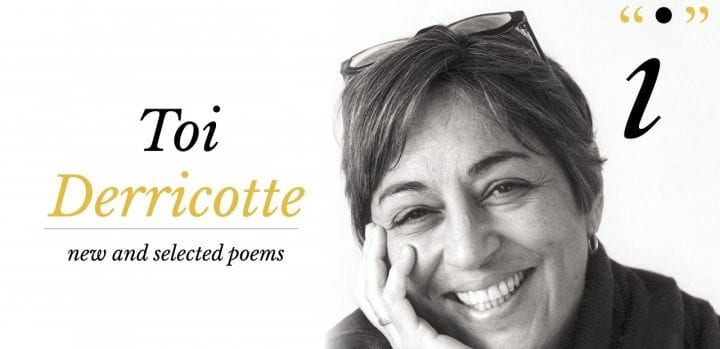
A Triptych on Toi Derricotte
February 24, 2021
This essay is part of a series in which Seattle Arts & Lectures partners with Poetry Northwest to present reflections on visiting writers from the SAL Poetry Series. On Friday, February 26, Toi Derricotte will read and discuss her work in an online event at 7:30 pm (PST). Tickets are still available!
By Bettina Judd
1. Do Not Pay Attention to the Poet Behind the Wall: Toi Derricotte in Workshop
“I think that memory . . . is in the service of the biggest psychic need.”—Toi Derricotte in The Black Notebooks
In the summers of 2007, 2008, and 2011, I sat at a seminar table with a small cluster of poets trying to unpack an unnamable thing that we were to reach for in our poems. It was somewhere on the axis of vulnerability, veracity, marrow, and repressed memory. A way to place oneself in the bed of a poem, lay bare, and be transformed. “like opening the chest & / Throwing the heart out with the gizzards.” The circle got around to me and Toi (pardon my familiarity here, it reflects the familiarity of the space that she and Cornelius Eady built in Cave Canem) looked toward me and said that she saw in me a brick wall. She asked, “What is behind that?” Something is soft there, I surmised, and yet there was another brick wall behind it protecting a vulnerable, something else. I still rail at this wall, the veils, and yet more mortar, brick, stone, concrete, rebar . . . I do want to be a better poet.
That is to say that Toi Derricotte’s workshop asks that we do for poems what we want the poems to do for others. To be wide open and funky with ecstatic truth:
It took so many years, the self
breaking like a pod, so many years
to pull up the details of
cruelties that were so quickly
buried—so that one could go on!—to bring all that
to consciousness, to hold that pain
for years until you learn both
the holding and the writing
She asked that we make poetry do real human work. Not the human work that has to do with being seen or known as human to an outside world—the reach for affirmation by the enlightenment’s champions—but practice, taking notes, and making those notes sing into a poem that forges the kind of being that is more real than the human that humans think they are. To mine for this means to wrestle with the contradictions of being both in the poem as a beating heart and the maker of that poem. A delicate but sacred balance that Derricotte, having mastered practiced it to precision, can reflect on with the singular pronoun:
I am not the “I”
In my poems. “I”
Is the net I try to pull me in with.
It’s funny to read a poet read themselves in this way. To interrogate her own desires for the page on the page. She makes every poem a workshop for being. The poem is the necessary vehicle for a kind of transformation that is becoming. Even to the young poet writing a poem within Derricotte’s poem, there is the epiphany of the poem as inner-life transformation:
Where is he today? Jermaine
Grier, a boy who once heard
a poem and followed it
out of the burning place within.
At those summer seminar tables poets try each June to reach for the thing, or try to hold back tears, or try to produce the promised awakening that Jermaine, or the Jermaine within Toi, had found. The poem will tell us the depths to which we will need to go.
Read the rest on Poetry Northwest